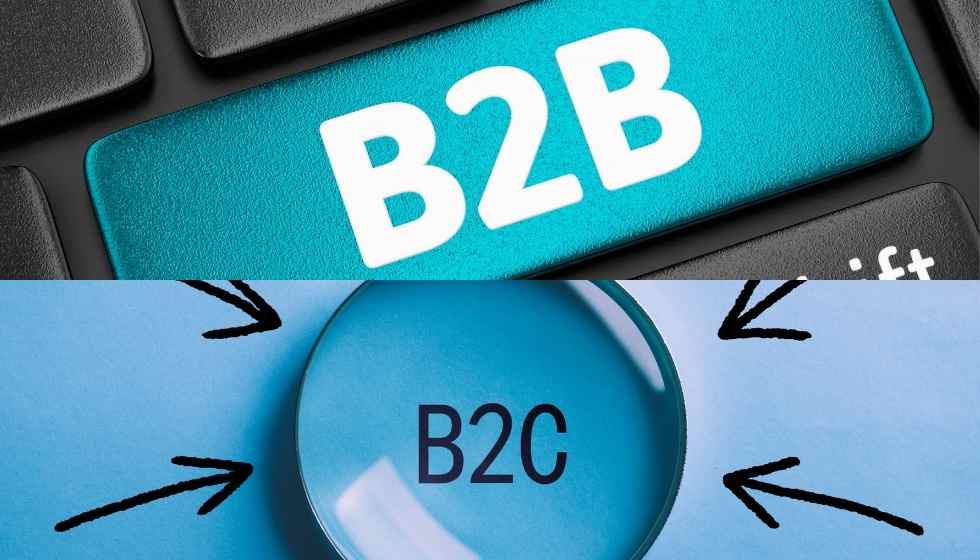Understanding the difference between B2B marketing and B2C marketing helps to understand the importance of a good marketing strategy to make a business work properly. Hence, investment in this department or this type of action is always on the rise and is directly related to companies’ good or bad results.
According to a report by Shopify Plus, in 2021, the e-commerce of the B2C model would invoice around 4.5 billion dollars. A figure to understand the magnitude of the market that is being generated.
And according to another Think with Google study from that same year, 51% of online consumers first search for information about a product or service on the internet. In other words, digital marketing is a necessity for any company today.
Difference Between B2B and B2C
Before going into the differences, it is essential to understand B2B and B2C marketing. B2B marketing is known as “business to business,” that is, those companies that directly deal or trade with other companies. On the other hand, B2C marketing corresponds to the acronym for “business to consumers,” that is, those companies that want to sell their products or services directly to the final consumer. The differences between both models allow a more in-depth understanding of the operation of a company and all the options to which it can aspire. The following would be the main ones:
1. The Language of Sale
In the case of B2B, a more professional and precise type of language is usually used, with more specific terminology, since both parties present themselves as “peers” in the process. On the other hand, in the case of B 2C, there is a more common and less technical language mainly because any user or potential buyer must be able to understand it without difficulty.
2. The Way to Sell
In the case of B2B, companies always want excellence, security, and knowledge. The best professionals are sought to achieve the best possible performance. On the other hand, B2C aims to satisfy a more or less punctual or recurrent need, but not as pressing. Examples of B2C actions are buying ice cream, choosing a t-shirt, etc. This makes motivation in this model much more instantaneous.
3. The Information that is Put Into Play
In B2B, there must be a technical display of information about the acquired product or service. This is an essential requirement for the sale to work most appropriately. However, in B2C, this is not necessarily the case. While many products come with information, it is often not as detailed. And what is more important, clients or consumers do not usually request it with the same level of depth.
4. The Relationship Between the Brand and the Consumer
In the B2B case, a very intimate form of trust is developed since they are usually business relationships that tend to last over time to the mutual benefit of both parties. This does not occur in B2C since the consumer and company relationship is much more distant or intermittent. It is not intended to develop such deep bonds, although it is designed to forge an ongoing commercial relationship (that is, to build trust, offer a good service so that the client returns, etc.).
5. The Time in the Purchase Cycle is Different
We already commented that, in B2B, the cycle is much longer. There is usually a more significant amount of budget at stake, and the chain of command is longer. In the case of B2C, it is mostly almost immediate purchases that the individual or consumer has to decide.
In conclusion, these are the differences between B2B and B2C marketing. The first is the model of advertising work that focuses on purchases and sales between the companies.
It is a slow process, with a demanding negotiation and a very high level of specialization on both sides. In the second case, that of brands to consumers, advertising focused on a much more agile and dynamic sales model is of interest.
In B2C, the satisfaction of immediate needs is generally sought, and a not-so-faithful and long-lasting relationship is established between the parties. While in the B2B model, the opposite happens.
